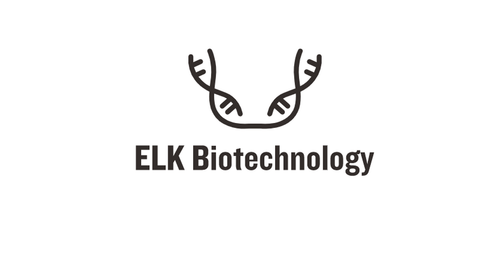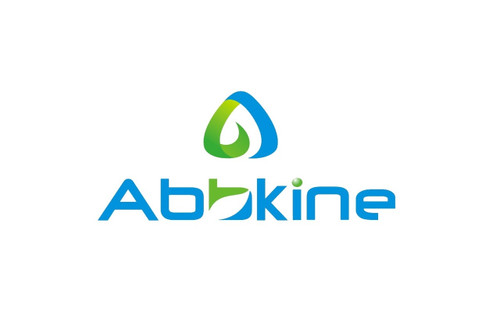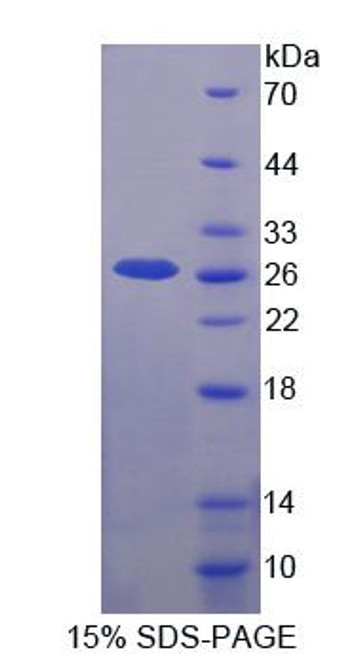Product Description
Human Uroplakin-3a (UPK3A) ELISA Kit | AE12121HU | Abebio
Species Reactivity: Human (Homo sapiens)
Abbreviation: UPK3A
Alternative Name: CTA-268H5.10; MGC119178; UP3A; UPIII; UPIIIA; UPK3; uroplakin III
Application: ELISA
Range: 0.312-20 ng/mL
Sensitivity: 0.125 ng/mL
Intra-Assay: ≤4.6%
Inter-Assay: ≤8.3%
Recovery: 1, 01
Sample Type: Serum, Plasma, Other biological fluids
Detection Method: Sandwich
Analysis Method : Quantitive
Test Principale: This assay employs a two-site sandwich ELISA to quantitate UPK3A in samples. An antibody specific for UPK3A has been pre-coated onto a microplate. Standards and samples are pipetted into the wells and anyUPK3A present is bound by the immobilized antibody. After removing any unbound substances, a biotin-conjugated antibody specific for UPK3A is added to the wells. After washing, Streptavidin conjugated Horseradish Peroxidase (HRP) is added to the wells. Following a wash to remove any unbound avidin-enzyme reagent, a substrate solution is added to the wells and color develops in proportion to the amount of UPK3A bound in the initial step. The color development is stopped and the intensity of the color is measured.
Product Overview: Uroplakins (UPK) are integral membrane proteins that form 2-dimensional crystalline arrays termed urothelial plaques that cover more than 90% of the apical urothelial surface. The asymmetric unit membrane (AUM) forms the apical plaques of urothelium and is believed to strengthen the urothelial apical surface and prevent the cells from rupturing during bladder distention. The 4 major conserved integral membrane proteins of the AUM are UPK1A, UPK1B, UPK2, and UPK3A. UPK3A encodes a member of the uroplakin family, a group of transmembrane proteins that form complexes on the apical surface of the bladder epithelium. Mutations in this gene may be associated with renal adysplasia. Alternatively spliced transcript variants have been described.
Stability: The stability of ELISA kit is determined by the loss rate of activity. The loss rate of this kit is less than 5% within the expiration date under appropriate storage condition. The loss rate was determined by accelerated thermal degradation test. Keep the kit at 37°C for 4 and 7 days, and compare O.D.values of the kit kept at 37°C with that of at recommended temperature. (referring from China Biological Products Standard, which was calculated by the Arrhenius equation. For ELISA kit, 4 days storage at 37°C can be considered as 6 months at 2 - 8°C, which means 7 days at 37°C equaling 12 months at 2 - 8°C) .
 Euro
Euro
 USD
USD
 British Pound
British Pound
 NULL
NULL












